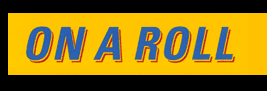On the other hand, without Marc there was no magic. So I proposed the only deal I could. Marc could open his own office in Israel, or nearby Italy, and continue his sales efforts from there. After all, about half of our advertising came from overseas anyway. So what did it really matter if the sales were done from Europe or America? We’d simply reverse the process. Previously, we’d sold about half our ads to Europeans from America. Now we’d sell half our ads to Americans from Europe.
Marc thought it was a great idea. With the much lower living costs in Israel he’d be almost rich on his American pay. The time zone problem also didn’t matter, since Marc normally worked till past midnight. When Marc took a vacation in 1989, we decided to test out how doing sales from Israel would work. It worked great. In fact, without having to deal with administrative work back in the States, his sales actually went up.
Everything seemed great until I saw my telephone bill. It was five times higher than it would have been had he made all the calls from the States. There is competition for long-distance service in the United States, but overseas there were only state-owned monopolies. The differential was staggering, and it was going to have to come from my pocket. The lessons learned at the hot dog stand, such as not overpaying for supplies, were not forgotten. Either I had to solve this problem or give up on Marc’s overseas expansions.
Why not bypass the European phone lines altogether? We could adapt the system I had used with my parents when I was in college. I’d call collect, using a code name, and they would refuse the charges. Then they’d call me back. Essentially, callback worked on the same principle. The European user would call a number in the States, and an operator would recognize his signal. Then he’d hang up, and within a few seconds he’d be “called back” with an open, American line over which to make his calls. Instead of paying for a call from France to New York, as an example, he would be using an American line, and his bill would reflect the cost of a call from New York to Paris instead. Depending on the country, he could save more than half the cost of his international phone calls. At first this whole process was done manually, with operators placing the return call. They had to work around the clock to accommodate different time zones. Eventually I designed a box and with the help of a computer engineer built one that mechanized the process and automatically redialed the caller. My phone bills were now manageable, and the callback industry had been born.
The lesson I learned from this is that if you look hard enough, you’ll usually find a way to circumvent obstacles. In fact, sometimes you can do this so effectively, and get such a big advantage over your competition by doing so, that it actually pays to go out looking for obstacles to circumvent.
About six months after inventing the callback system, I was on vacation with my family in Israel. Here I used the callback system many times myself in the presence of others. Almost everyone who saw this was amazed and told me they wished they could use my system to cut their own bills. Although I was flattered, I couldn’t accommodate them, since I only had enough callback equipment for my own purposes.



